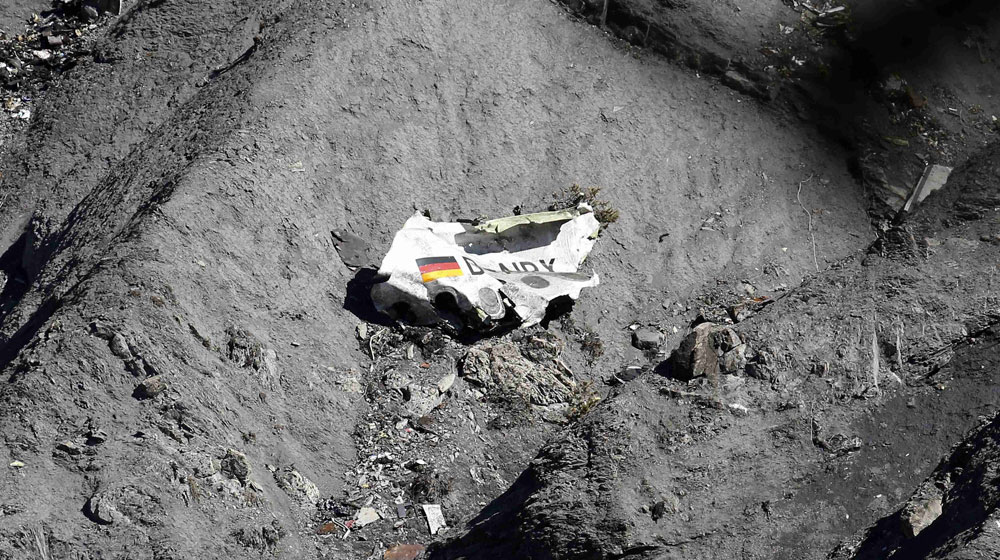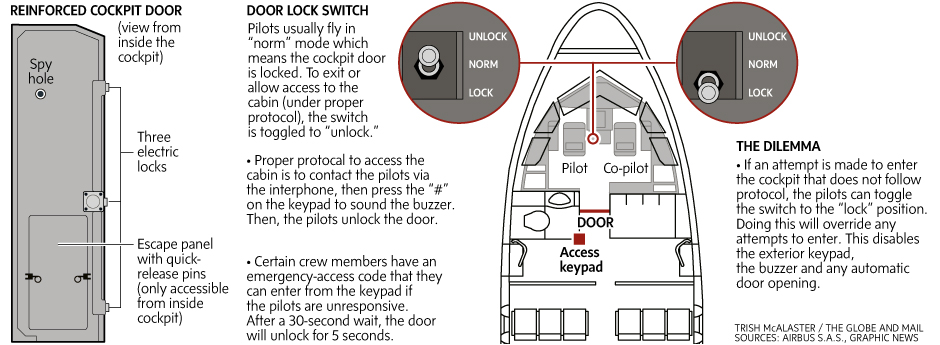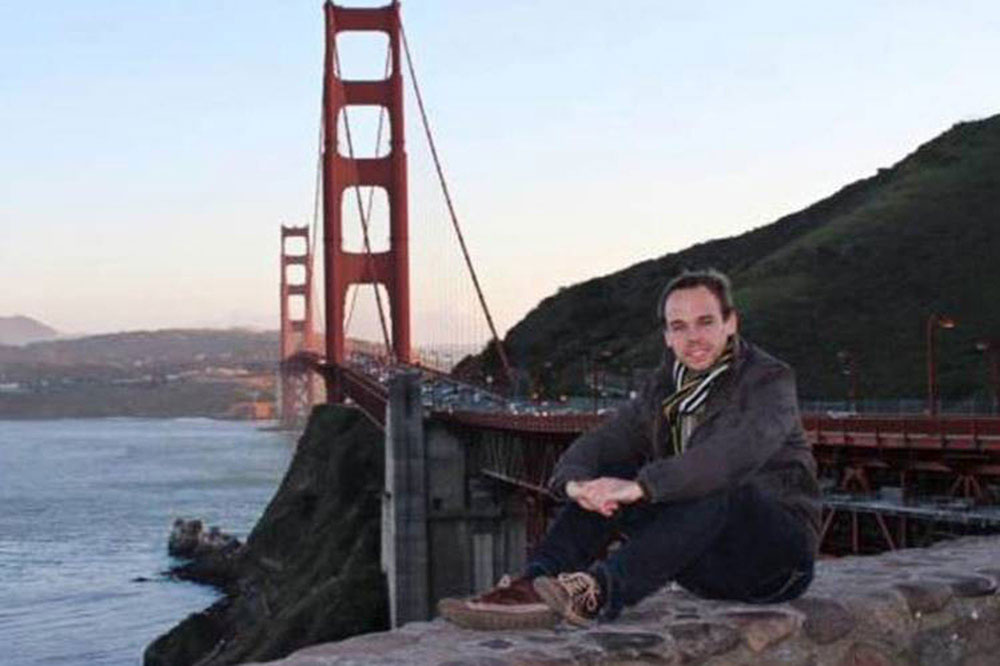As investigators speculate as to why co-pilot Andreas Lubitz might have intentionally crashed Germanwings Flight 9525, a portrait of a 'very happy' guy who loved to fly emerges

armoured doors and secret access codes to cockpits, which were intended to secure cockpits after Sept. 11, 2001, hijackings, reports Paul Koring
A junior German co-pilot – ignoring the screams of his doomed passengers – deliberately flew the Germanwings Airbus A320 into a French mountainside, killing everyone on board, prosecutors said Thursday.
After locking himself alone in the cockpit, Andreas Lubitz, 27, pushed the Airbus into a steep, but controlled dive, as the captain frantically pounded on the armoured door. For more than eight minutes, the plane steadily descended before slamming into the rugged, remote slopes of the Alps on Tuesday.
Investigators revealed this nightmarish sequence of events after listening to the cockpit voice recorder recovered from the remains of the pulverized A320.
“Only toward the end do you hear screams,” said Marseille prosecutor Brice Robin. And, perhaps in an effort to ease the horrific scenario now haunting the bereaved family members, Mr. Robin said: “Bear in mind that death would have been instantaneous … the aircraft was literally smashed to bits.”
Police raided Mr. Lubitz’s home in Germany searching for clues that might reveal motive.
The Germanwings crash is not the first instance of mass killing of passengers by a pilot. But Mr. Lubitz’s deliberate, daylight dive into obliteration is the first that involved the armoured doors and secret access codes to cockpits instituted as security measures on airliners in the wake of the Sept 11, 2001, hijackings in which al-Qaeda terrorists stormed the controls of four U.S. airliners and flew them into New York’s twin towers and the Pentagon.
Lufthansa chief executive officer Carsten Spohr said his airline set high standards but insisted: “There is no way to rule out such an event.”
But other airlines, including several in Canada, quickly scrapped existing policies that – like Lufthansa and Germanwings – allowed for one pilot to remain alone in the cockpit while the other went to the toilet or into the passenger cabin.
Federal Transport Minister Lisa Raitt said Thursday that government rules will be changed to make that a requirement on commercial flights. That matches the long-established and tougher requirement from the Federal Aviation Administration for U.S. airlines that requires two people in the cockpit at all times.

Air Canada will change procedures “without delay” to require that a flight attendant replace a pilot in the cockpit if one needs to leave and that two people remain in the cockpit at all times on all flights, the airline said Thursday.
WestJet Airlines Ltd. and Air Transat also announced they would change to a two-person in the cockpit policy.
In Europe, Easy Jet, a British-based low-cost airline, and Norwegian Air Shuttle also announced they were changing procedures to require two in the cockpit at all times.
Nothing known so far linked Mr. Lubitz to extremist groups but a major criminal investigation was underway. He earned his commercial wings two years ago and joined Germanwings, the budget arm of Lufthansa, in September, 2013, direct from Lufthansa’s pilot school.
According to Mr. Robin, Mr. Lubitz acted “for a reason we cannot fathom right now but which looks like intent to destroy this aircraft.”
On Tuesday, with the A320 cruising uneventfully at 11,600 metres, roughly halfway through a routine two-hour flight from Barcelona to Dusseldorf, the captain left the cockpit. He was a 20-year veteran with more than 6,000 flying hours compared to Mr. Lubitz with barely one-tenth that time flying.
When the captain tried to return to the cockpit and knocked on the door, Mr. Lubitz didn’t answer and didn’t unlock the armoured door. Instead he pushed the aircraft into a shallow dive, steeper than a normal approach to landing but not bizarrely steep.
Outside the locked door, the captain, realized something was amiss.
“You can hear banging to try to smash the door down,” Mr. Robin said. Modern airliners with their armoured anti-terrorist doors, also have safety schemes designed to unlock cockpit doors in the event that pilots are incapacitated. In that scenario, a flight attendant, armed with a secret code, can enter it on a keypad which – unless thwarted from inside the cockpit – unlocks the door. Mr. Lubitz apparently used the over-ride function twice.
The co-pilot did not say anything, not to the increasingly frantic captain nor to the air-traffic controllers who repeatedly called the diving Germanwings Airbus.
“All we can hear is the sound of breathing until impact suggesting the co-pilot was alive until impact,” Mr. Robin said.
A French Air Force Mirage, sent to intercept the Airbus A320 when it failed to respond to air-traffic controllers, arrived too late. The obliterated remains of the Germanwings aircraft were scattered across a rocky slope near the Foux d’Allos ski resort.
Just before the recording stopped, alarms were sounding in the cockpit – likely the increasingly strident “Pull Up, Pull Up” that warns pilots of imminent impact with terrain – and screams of passengers can be heard on the tape.
But Mr. Lubitz was apparently unflustered, secure behind the sophisticated armoured system designed to keep fiends out of the cockpits and passengers safe from terrorist and hijackers.
“You don’t get the impression that there was any particular panic, because the breathing is always the same. The breathing is not panting. It’s a classic, human breathing,” Mr. Robin said.
Families of the victims, who had travelled to France, visited an alpine clearing nor far from the remote crash site which is so steep that it can only be reached by helicopter or strenuous hiking. The Lubitz family, who had also made the journey, were kept apart from the others once it emerged that the co-pilot had deliberately caused the crash.
=
